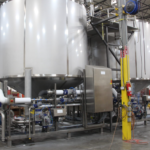For generations, the American work ethic has been synonymous with grit, hustle, and the belief that hard work leads to success. It’s woven into the fabric of the country’s identity, often framed as a badge of honor. But something’s shifting. Across industries, people are rethinking not just how they work but why they work. Is this the natural evolution of labor in a modern society, or are we watching the slow erosion of a value that once defined the nation?
The Rise of “Work to Live” Over “Live to Work”
Not long ago, success was measured by long hours, career milestones, and climbing the corporate ladder. The idea of a balanced life often took a backseat to professional achievements. But today, priorities are changing. More people are embracing the “work to live” philosophy, focusing on life outside the office rather than letting work define their identity.
This shift isn’t about laziness—it’s about perspective. The pandemic accelerated a lot of this change, forcing people to reevaluate what really matters. Remote work blurred the lines between personal and professional life, making it clear that time, not money, is often the most valuable currency. Now, flexibility, mental health, and meaningful experiences rank just as high as salary when it comes to job satisfaction.
Rethinking Success in the Modern Workforce
The traditional markers of success—a corner office, a big title, a hefty paycheck—are losing their universal appeal. Younger generations, especially, are challenging these norms. They’re not rejecting success; they’re redefining it. For some, success means financial freedom through unconventional paths. For others, it’s about creative fulfillment, social impact, or simply having the freedom to live life on their own terms.
This is where the insight of an ESOP analyst becomes particularly interesting. Employee Stock Ownership Plans aren’t new, but they’re gaining attention as workers look for ways to build wealth beyond a standard paycheck. An ESOP analyst evaluates how employee ownership can create a stronger connection between workers and the companies they help grow. It’s a model that doesn’t just reward clocking in—it rewards true investment, both financially and emotionally. This shift toward shared ownership reflects a deeper desire for work to be meaningful, not just profitable.
The Productivity Paradox
You’d think that shorter workweeks, remote jobs, and flexible schedules might lead to a dip in productivity. But the data tells a different story. In many cases, people are more productive when they have control over how and where they work. The traditional 9-to-5 grind isn’t necessarily the most efficient way to get things done—it’s just the way things have always been.
So why does it feel like productivity is slipping in some areas? Part of the answer lies in burnout. Even with flexible schedules, the pressure to be “always on” hasn’t disappeared. Emails after hours, constant notifications, and blurred boundaries can leave people feeling stretched thin. The irony is that in trying to maximize efficiency, we’ve created a culture where people are mentally checked out even when they’re technically “working.”
Technology’s Double-Edged Sword
Technology has transformed the way we work. On one hand, it’s given us incredible tools to connect, create, and collaborate. On the other hand, it’s made it harder to disconnect. We’re living in an era where work follows us everywhere, from our phones to our smartwatches. This constant connection can lead to exhaustion, not productivity.
Then there’s the growing influence of the Metaverse and digital spaces designed to replicate—or even replace—traditional workplaces. While some see this as the future of collaboration, others view it as a step further into a world where work never truly stops. The challenge isn’t the technology itself but how we use it. Are these tools enhancing our lives, or are they subtly eroding the boundaries that help us maintain a healthy relationship with work?
Cultural Shifts and the Value of Hard Work
Critics argue that the changing work ethic signals a decline in values like dedication, discipline, and perseverance. But is that really the case? Or are we simply witnessing a cultural shift where hard work looks different than it did in the past?
Hard work isn’t just about hours logged; it’s about the impact of that work. A software developer writing code, an artist creating a masterpiece, or a teacher shaping young minds—they all embody hard work, even if their schedules or methods don’t fit the traditional mold. The core value hasn’t disappeared; it’s just being expressed in new ways.
The Work Ethic Isn’t Dead—It’s Evolving
The American work ethic isn’t vanishing; it’s evolving. What once meant long hours and rigid routines now includes flexibility, purpose, and balance. People aren’t working less because they don’t care—they’re working differently because they do care, about their health, their families, and their lives outside of a paycheck.
Change often feels uncomfortable, especially when it challenges long-held beliefs. But evolution is a sign of progress, not decline. The work ethic is alive and well—it’s just wearing a different face, one that reflects the complexities of the modern world.














